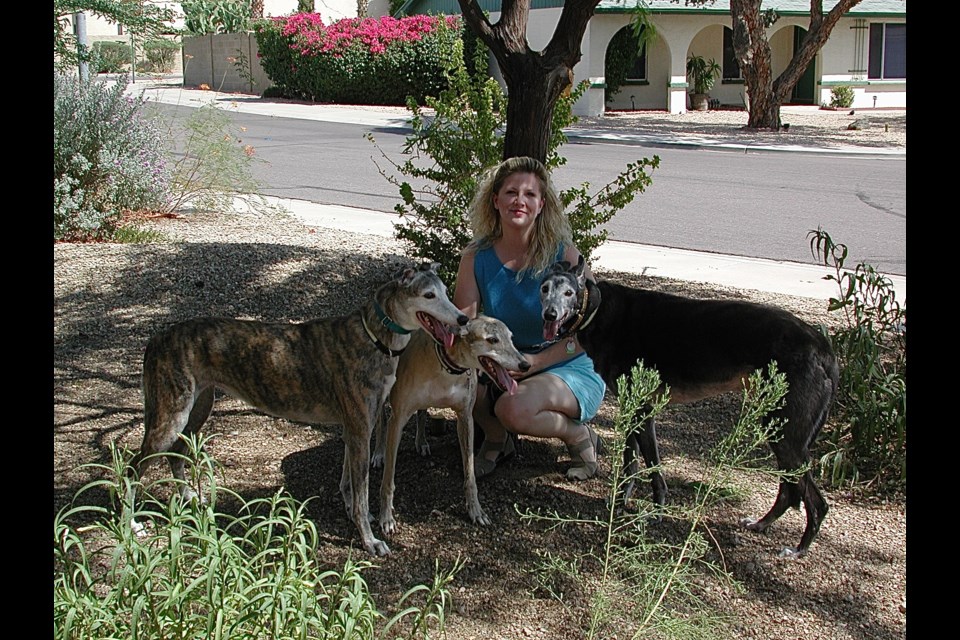We have a day school program called EduCare for Dogs. In this program we tailor the weekly curriculum to target primary life skills, including problem solving, impulse control, conflict resolution, focus and relevance, confidence building and body control. While we use obedience as a pathway to those skill sets, obedience is not our primary goal. These primary life skills, or Executive Function Training, is our focus. Not only do these skills promote good behavior but did you know they actually promote better brain health? It is all about neuroplasticity.
What is neuroplasticity?
Neuroplasticity is about how nerve cells adapt to circumstances. It causes nerve cells to respond to stimulation by generating new tendrils of connection to other nerve cells, called synapses. This actively promotes cognitive and mental health and reduces the impact of negative stimuli. Neuroplasticity underlies the capacity for learning and memory, and it enables mental and behavioral flexibility.
How does mental training help with neuroplasticity?
Mental training is one of the more powerful ways to open up “windows of plasticity” in the brain. Mental training stimulates the release of the substance known as brain-derived neurotropic factor (BDNF), which sets in motion the growth of new synaptic connections and bolsters the strength of signals transmitted from neuron to neuron.
How do EduCare activities promote mental training?
EduCare’s curriculum is designed to enhance mental training. We don’t focus on repetitive training that yields perfect responses. We don’t actually want to get dogs to a high level of fluency in their training while at school. Once dogs become fluent in a behavior, it takes much less mental training to perform that behavior as it becomes more like a habit. We want the dogs thinking. That is why we are always changing things up. Once a dog becomes proficient at a behavior, we find new ways for them to apply that knowledge and new situations in which to engage in that behavior.
When you watch the videos, it may seem like your dog should be performing at a more proficient level based on his training history or how he performs his training at home. Remember that we are always adjusting our activities to create a new mental challenge for your dog to work through. Even their basic training behaviors may become challenging to perform at EduCare.
There are many factors that impact their performance, including:
· The social dynamics with all their classmates.
· The interaction with their teachers.
· Environmental conflict and distractions.
· The context in which they are asked to perform behaviors.
· Their level of patience while waiting their turn.
· How each dog deals with varying levels of frustration.
· How each dog handles disappointment when things don’t go the way they want.
· Each dog’s particular learning style and life-skill that underly each activity.
· And many, many more factors…
Remember, we want the dogs to be challenged in order to keep their brains busy thinking and figuring things out. If your dog does particularly well with one activity, you can be sure they will be challenged by another. This is why we are always varying the activities. We don’t want a school full of dogs acting out of habit. We want a school full of studious little dogs working through challenges that help with brain health.
Please tune in to our Instagram page, EduCarefordogs, so you can see the activities being performed by our superstar EduCare students. You don’t need to enroll your dog in order to benefit from these skills. These activities are easy for you to follow along with your dog while watching the videos with instruction on Instagram. Not able to follow the activities at home exactly as on the videos? Just focus on the underlying skill we are working and adapt what you are doing. Remember, it is not about making your dog proficient at this activities, it is about exposing him to different learning styles and different skills to enhance his learning experience.
Sam Freeman, CPDT-KSA, is the president and owner of Pet Behavior Solutions and Edu-Care for Dogs of the Valley. She is the creator of the Core Behavior Assessment, which is the behavior evaluation program used by many animal shelters and animal control agencies in Arizona. Freeman is certified through the Certification Council for Professional Dog Trainers and has completed specialized education and training in psychology, learning theory, ethology, family counseling, behavior modification techniques, aggression, canine and feline behavior issues, and grief counseling. Visit her online at petbehaviorsolutions.com.



